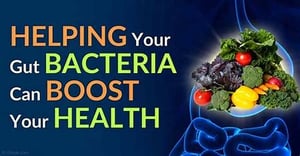AS we age we know our bodies change and adjust. ALL bodies change slightly differently, depending on genetics, sex and lifestyle. On thing that is for sure common to ALL aging, is the food absorption capabilities.

An important word for the GUT and absorption is Microflora...
- It is the microbes that reside within the human gastrointestinal, urogenital tract and skin etc.
- It is both persistent and stable and under normal circumstances, does not elicit an acute immune response.
- It represents 85% of the total microbes in the gastro intestinal system
Microflora help the immune system, in fact they are the body's immune responders...
- Good bacteria in the GIT (gastro-intestinal tract) migrates to colonize the urogenital tract and the vaginal tract.
- We have immune tolerance to good bacteria just like we do to a baby during the pregnancies and ourselves
- If we develop an intolerance to the good bacteria; inflammation and chronic conditions of colitis, Crohn’s etc. start to present.
- Resolving allergy and autoimmunity is re-establishing immune tolerance to bacteria
- Adult microflora is subject to change based on diet, stress, antibiotics
A theory of aging - the increase of the bad bacteria producing toxic substances in the large bowel is a factor of aging

Bad bacteria, which are part of the normal gut flora, produce toxic substances such as ammonia.
Good bacteria must exist in higher numbers to protect us -85% of total microbes
...Aids the digestion of all foods
- Developing of ‘immune tolerance’ mechanisms which benefits 'fighting' diseases.
- Decreasing susceptibility to infection. Helps detox out toxins and heavy metals.
- Helps to stabilize blood sugar, regulate blood pressure, prevents allergies and autoimmune conditions from developing.
- Lowers cortisol levels, helps with depression and brain function by improving memory and cognitive ability
You can support your gut health by eating the right foods:
- Probiotic foods are cultured foods that contain beneficial microbes that help with digestion: miso, tempeh, sauerkraut, kimchi, kefir and yogurt are all examples of fermented foods.
- Prebiotic foods are foods with resistant starches and fibers that we can't digest, but are food for our good bacteria: garlic, onions, broccoli, cauliflower, apples, lemons, legumes and whole grains. These help to increase the number of good bacteria that live in our guts.